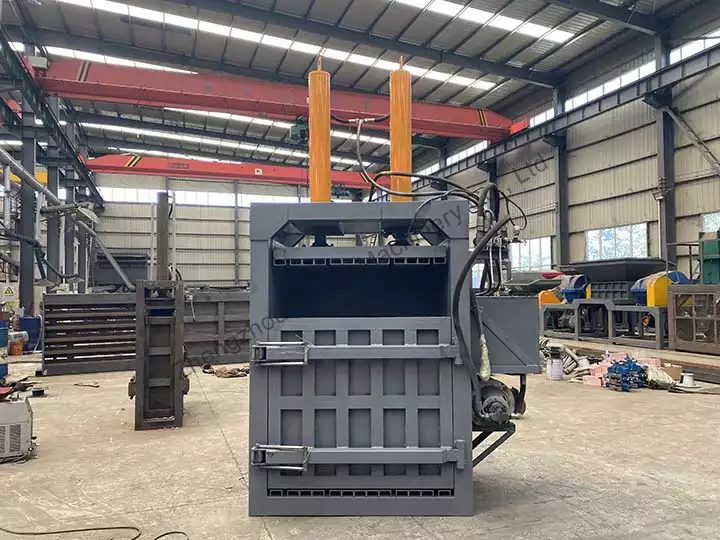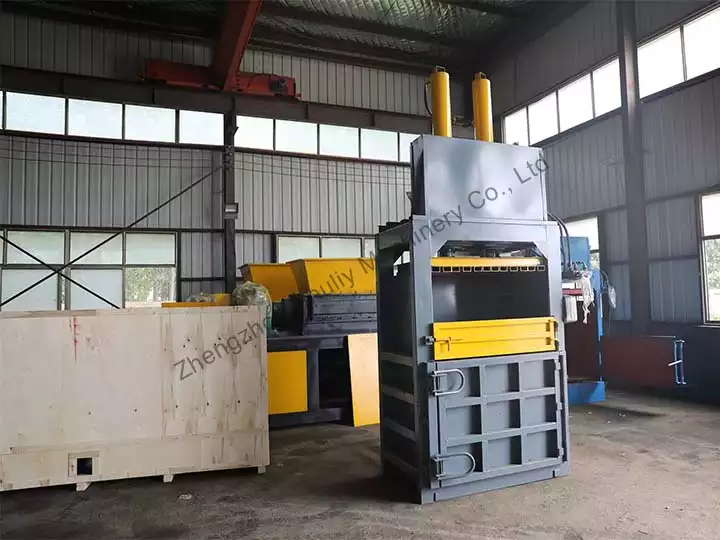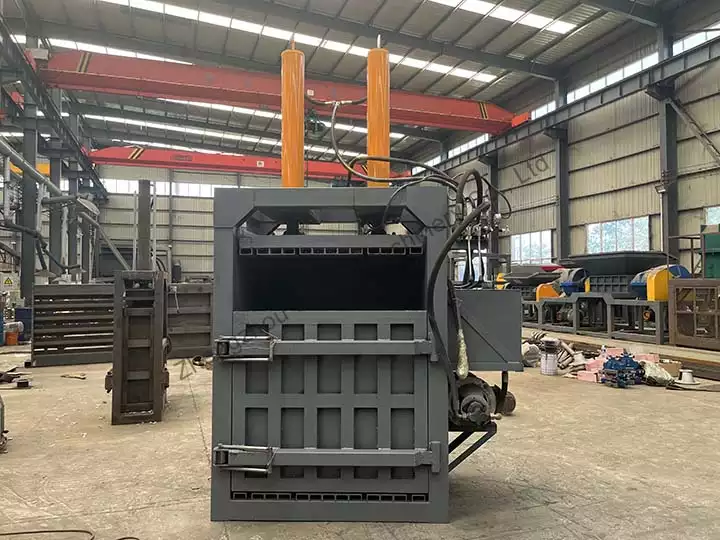SL-60T vertical cardboard baler sold to Ghana
We’re happy here to share that one Ghanaian client ordered one vertical cardboard baler for solving his waste cardboard baling needs. In order to complete the purchase successfully and reduce the risk of the transaction, he chose to work with his Chinese friend to make the payment on his behalf and prepare the shipment.
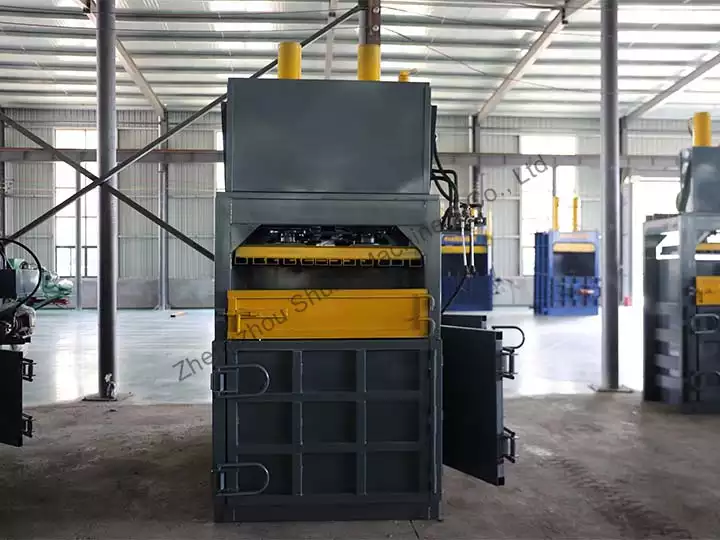
Why buy the vertical cardboard baler for Ghana?
Knowing the importance of the vertical cardboard baler in waste paperboard recycling, this Ghanaian customer began his search for a suitable equipment supplier. Through extensive market research and consultation, he chose a well-known Chinese manufacturer of vertical hydraulic balers, a company known for its excellent product quality and good reputation.
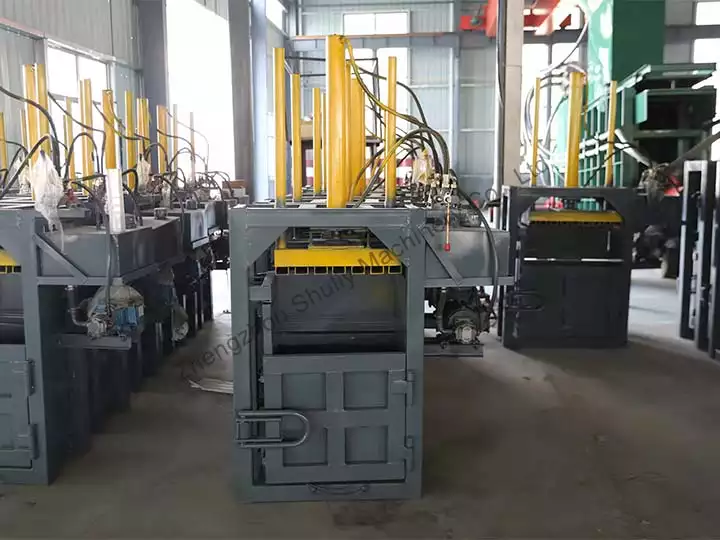
In order to reduce transaction risks and the inconvenience of cross-border payments, the customer decided to partner with his Chinese friend for payment on his behalf. This cooperation not only simplified the transaction process, but also strengthened the trust and cooperation between the two parties.
Package and delivery of 60T vertical cardboard baler machine
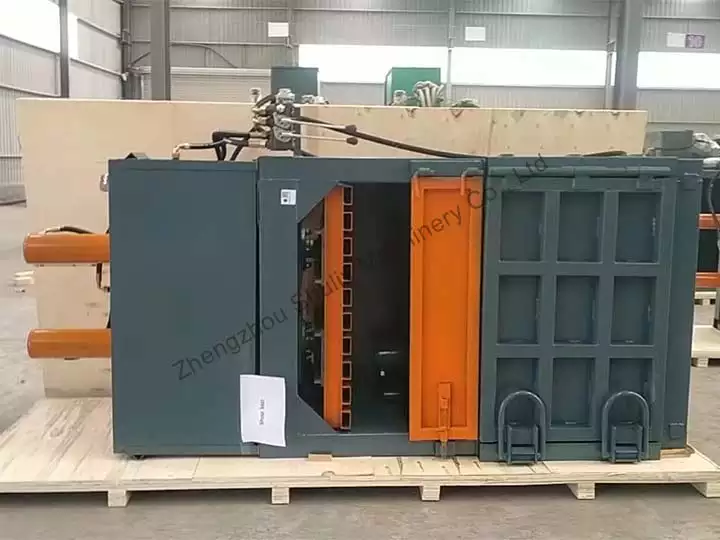
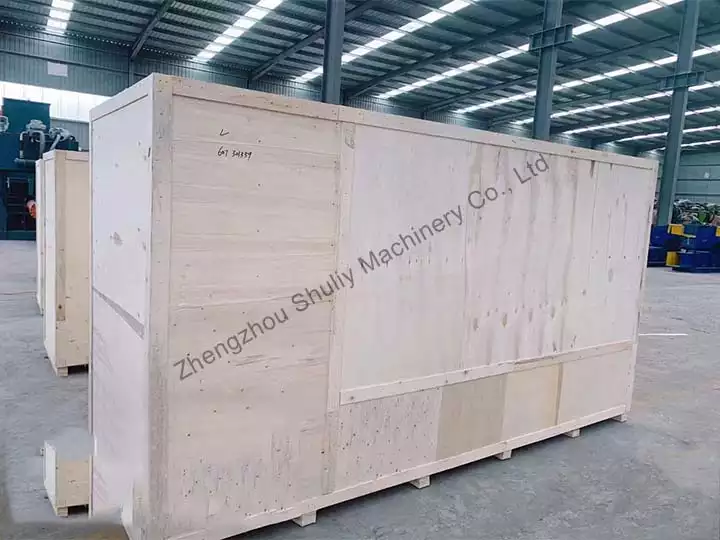
The vertical hydraulic baler is now ready for dispatch. The customer is full of anticipation, knowing that this equipment will greatly improve the efficiency of his waste paper board baling and bring more opportunities and profits to his waste paper recycling business. He is looking forward to the arrival of the equipment and believes this purchase will bring long-term value and benefits to his business.
Machine list for Ghana
| Item | Specifications | Qty |
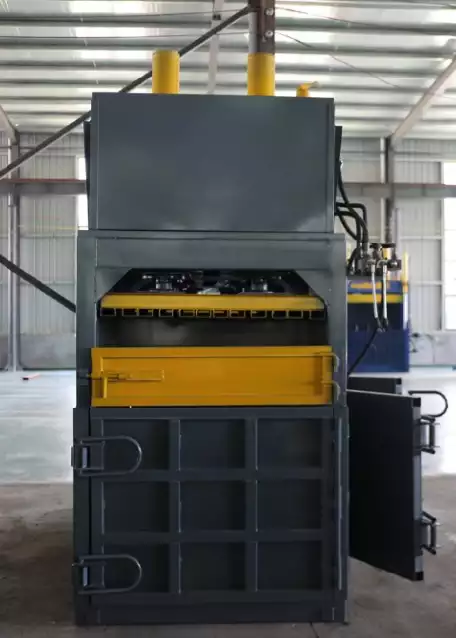 | Model-60 Pressure: 60tons Power:15kw Baler size : 110*75cm cylinder stroke:160cm Machine size: 1850*2000*3100mm | 1 set |
Notes: In order to ensure the security of the transaction, both parties agree on the payment terms: the customer needs to pay 30% of the total price of the equipment as a deposit, and production will start after the receipt of the deposit is confirmed. After the production is completed and confirmed by the customer, the customer needs to pay the remaining 70% of the final payment before delivery. This payment method not only protects the interests of the supplier, but also provides the customer with a certain degree of payment flexibility.

